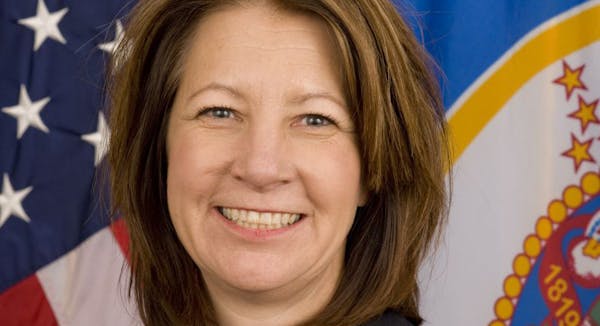It was painful to watch Minnesota's stellar health care reputation and its Human Services commissioner, Lucinda Jesson, get pummeled on Wednesday at a congressional hearing on Medicaid oversight.
The sharp, high-profile criticism of Minnesota's medical program for the poor sent a strong message to officials in all states: They are financial stewards of federal tax dollars, not just state funds.
That responsibility is too often overlooked in a flawed Medicaid system that doesn't reward states for spending wisely on this critical safety-net program but instead gives them incentives to try to milk as many federal dollars as possible.
It's easy to look at the sprawling Medicaid program and despair that the nation will never get its deficit spending under control. Medicaid provides care for more than 50 million poor and disabled Americans.
The program will expand under the Affordable Care Act, a backdrop that helped fuel Republican criticism at the hearing. Annual spending has grown by 450 percent in 20 years, according to a new congressional report, and is expected to hit $457 billion in 2012.
The program's size and its joint federal-state funding make oversight complex. The federal government practice of matching state spending creates a horse race for states to draw down extra federal money and opens the door for practices that inappropriately increase the feds' share.
A 2004 report from the Government Accountability Office (GAO) concluded that states have used various "schemes" to claim excessive federal funds while minimizing their own contributions.
To keep Medicaid affordable, these dubious practices need to end. And if the program is to significantly expand, there can be no question about the integrity of its management at either the state or federal levels.
That's why Minnesota found itself under fire at a Washington hearing that also highlighted disturbing Medicaid problems involving providers in two other states.
Noting that states are relying more on private insurers to manage Medicaid patients, Sen. Charles Grassley, R-Iowa, and Rep. Michele Bachmann, R-Minn., questioned whether Minnesota has systematically overpaid health plans to provide Medicaid coverage. Citing UCare's controversial $30 million voluntary giveback to Minnesota last year, Grassley asked how long this kind of systematic overpayment might have occurred.
Rep. Betty McCollum, D-Minn., deepened those concerns when she spoke at the hearing to defend Gov. Mark Dayton's reforms, which include competitive bidding for Medicaid contracts and more audits. McCollum said officials from former Republican Gov. Tim Pawlenty's administration had negotiated eight years of contracts with the plans, and she sharply noted that those officials weren't testifying.
The state's Republican-controlled Legislature recently passed a bill that will independently audit the state's managed-care companies. It's a good step, but the audits won't begin until 2014. That's a long time to wait for independent answers about whether the state has systematically overpaid plans and whether the recently announced $73 million in givebacks by Minnesota's big plans is sufficient.
The hearing put a spotlight back on Jesson's troubling handling of UCare's 2011 payment, which raised questions about how much the state pays health plans to manage Medicaid patients. Under bipartisan criticism on Wednesday, Jesson struggled to defend her efforts to call the money a "donation," which enabled the state to keep the whole sum instead of splitting it with the feds.
The acidic comments from members of the House committee suggested that they viewed this as a scheme to hang onto federal dollars.
Jesson, who had previously failed to disclose a key document showing that the feds wanted the money back, would have been better off simply saying that she made mistakes and that the money was now being shared with the feds.
Unless she is more forthcoming in the future, the issue will continue to take attention away from the worthy reforms her department has launched.
------------
Readers, what do you think? To offer an opinion considered for publication as a letter to the editor, please fill out this form. Follow us on Twitter @StribOpinion and Facebook at facebook.com/StribOpinion
Protect kids online

Here's how I'd broadly frame the environment that led to my firing as a teacher
Get rid of Minnesota's precinct caucuses, go to primary elections up and down the ballot


